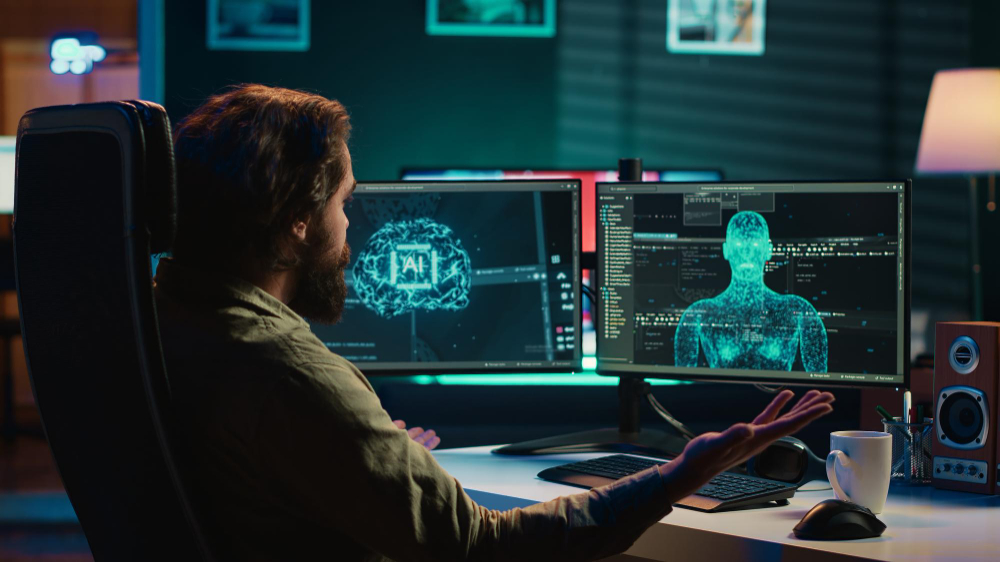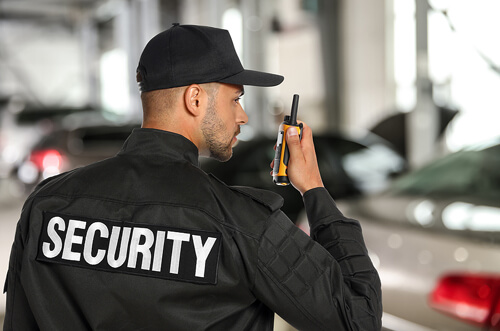The Role of Security Guards in Airport Security
Introduction to Airport Security
Airports are one of the busiest places in the world, hosting millions of passengers and cargo movements every year. With such large-scale operations, maintaining safety and security becomes a top priority. While technology like CCTV cameras, scanning devices, and biometric systems play a huge role, the presence of trained human personnel is equally critical. Security guards act as the first line of defense in preventing unlawful activities, monitoring suspicious behavior, and ensuring that passengers, staff, and infrastructure remain safe. Their job extends far beyond patrolling; it involves vigilance, quick decision-making, and professional conduct. Without them, the overall efficiency of airport security systems would face serious challenges.
The Vital Role of Human Presence
Unlike machines, security guards have the unique ability to interpret human behavior in real-time. Their presence creates a visible deterrent for criminals or individuals attempting to breach airport rules. Guards are trained to observe even the smallest suspicious actions, whether it’s unattended baggage, unusual passenger movements, or attempts to bypass security checkpoints. This human intervention complements advanced security systems, making the overall protection framework stronger. Airports require a balance between digital monitoring and physical presence to maintain order and prevent incidents before they escalate.
Access Control and Monitoring
One of the most important tasks of security guards in airports is access control. Airports are divided into restricted and public areas, and not everyone is allowed to move freely between them. Guards stationed at entry and exit points verify identification, check boarding passes, and ensure that only authorized personnel or passengers enter secure areas. By monitoring access points, they reduce the risk of intruders or unauthorized individuals entering sensitive zones like runways, control towers, or cargo sections. This helps to maintain a safe and controlled environment throughout the airport.
Collaboration with Law Enforcement
Airport security guards often work in close coordination with local police, aviation security forces, and emergency responders. While guards handle routine checks and passenger monitoring, they are also trained to escalate serious threats to law enforcement agencies. For instance, in case of a potential terrorist attempt or an armed intrusion, guards act as the first responders until specialized forces arrive. Their collaboration ensures that the airport remains ready to respond to any situation, whether small disturbances or high-level emergencies, without causing unnecessary panic among travelers.
Preventing Theft and Smuggling
Airports are hubs where valuables such as luggage, electronics, and even luxury goods pass through daily. Unfortunately, this also makes them attractive targets for thieves and smugglers. Security guards help prevent such crimes by conducting luggage inspections, monitoring baggage claim areas, and patrolling cargo sections. Their vigilance ensures that passengers’ belongings remain safe and that no illegal goods are transported through the airport. Guards also play a role in identifying human trafficking attempts, which is a serious global issue linked with air travel.
Emergency Response and Crowd Management
During emergencies such as fire outbreaks, medical incidents, or natural disasters, security guards become the guiding force for passengers. Their training equips them to handle panic situations, direct people towards safe exits, and coordinate with emergency services. Large crowds at airports can quickly turn chaotic without proper management. Guards ensure orderly boarding, prevent overcrowding at check-in counters, and assist passengers in distress. Their calm yet authoritative presence provides reassurance to travelers, especially during uncertain situations.
Technology Support and Surveillance
While technology like X-ray scanners, biometric systems, and CCTV networks provide essential support, these systems need skilled operators. Security guards are often trained to monitor surveillance systems and identify unusual activities. They ensure that technology functions properly and step in when human intervention is required. For example, if a scanner highlights a suspicious object, it’s the guard who carries out further checks. This blend of human expertise and advanced systems builds a strong security shield across the airport.
Building Passenger Confidence
A safe airport environment not only protects passengers but also boosts their confidence in traveling. The presence of security guards reassures people that their journey is protected from risks. This is especially important in international travel, where diverse groups of passengers come together. Guards provide guidance, assist lost travelers, and address concerns politely while staying alert. Their professionalism directly impacts the airport’s reputation, making passengers more likely to trust and choose the same airport in the future.
Specialized Security Services
Airports require specialized security services tailored to their unique environment. For instance, static security guards are often employed for fixed positions like entry gates, boarding areas, and cargo zones. These professionals focus on continuous observation of specific areas to prevent threats before they occur. Many airports rely on static security guards for this purpose. Their role is indispensable in maintaining long-term safety within high-risk zones that require constant human monitoring.
Professional Security Companies
To maintain high standards, airports often outsource their requirements to specialized firms offering skilled personnel. These companies provide trained guards who understand aviation protocols, emergency response strategies, and international compliance standards. Many reputable providers, such as security guard services, deliver customized solutions that align with an airport’s specific needs. Hiring through professional firms ensures that the guards deployed are not only well-trained but also equipped with the latest knowledge of global aviation security requirements.
Global Standards and Continuous Training
Airport security is not static; it evolves as new threats emerge. Guards undergo continuous training to stay updated on modern threats, including cyber risks, terrorism, and smuggling tactics. Their training programs include both physical drills and theoretical knowledge of international aviation laws. Regular drills prepare them to respond effectively to real-life scenarios without hesitation. This adaptability is what keeps airport security effective in a constantly changing world.
Conclusion: The Human Shield of Airports
While technology continues to advance, the human role in airport security remains irreplaceable. Guards are not just individuals in uniform; they represent trust, safety, and order. Their ability to handle emergencies, monitor behavior, and ensure smooth passenger flow makes them the backbone of airport safety. Without their dedicated service, the modern aviation industry would struggle to provide a secure and reassuring experience for millions of travelers worldwide.
Frequently Asked Questions
1. Why are security guards important in airports?
They provide a human layer of defense, preventing suspicious activity, managing emergencies, and ensuring passenger safety alongside technology.
2. Do security guards only check luggage and boarding passes?
No, their responsibilities also include surveillance, emergency management, crowd control, and assisting passengers in distress.
3. How do security guards work with technology in airports?
They monitor CCTV systems, support scanning devices, and act when unusual activities are detected by machines.
4. Are airport security guards trained for emergencies?
Yes, guards undergo specialized training to handle medical emergencies, fires, and even potential terrorist threats.
5. Why do airports hire professional security companies?
Professional firms supply trained personnel who understand aviation standards and offer customized safety solutions.





